
Teoh Ming Jin and Beatrice Leong (Photo: Shahrin Yahya/The Edge)
When the government announced the country’s transition into the Recovery Movement Control Order in June, museums, along with other recreational and commercial activities, were allowed to reopen. It was the news Beatrice Leong and Teoh Ming Jin had been waiting for.
Leong had been renting two vacant heritage shophouses in Jalan Tun Perak since the beginning of the year, but plans to launch an event space, Tun Perak Co-Op, with Teoh, fell through when the number of Covid-19 cases escalated.
When the green light was finally given, the pair had less than two weeks to set up their first show.
The major rush job required all hands on deck — a conservator travelled from Penang to break down the walls, electricians and designers were roped in at the last minute to furnish the two floors and framers had to work until the morning of the opening to put up the artwork for Kide Baharudin’s debut solo exhibition, Pe’el (which ran from July 17 to Aug 2).
20200729_peo_beatrice_ming_12_msy_1.jpg
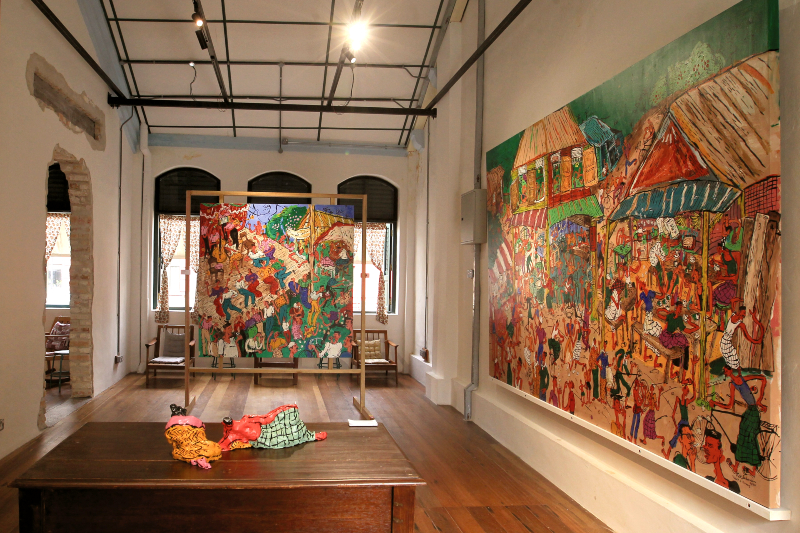
It was this maelstrom of excitement that the two founders had missed. “It hadn’t felt like that for me for the longest time,” shares Leong, a filmmaker who was responsible for strategising content and programmes for the revival of Rex KL.
Teoh, the co-founder of theatre consulting firm Stage Centre Line Associates (SCLA), echoes the sentiment and jokes, “It must be the MCO.”
It is hard to believe this dynamic duo, who finish each other’s sentences, are relatively new friends. Leong first learnt of the shophouses through ThinkCity, an organisation that works to regenerate hollowed-out urban areas. She was introduced to Teoh by a mutual friend with whom she had talked to about her new space.
The initial idea of approaching Leong was to see what SCLA could do with the infrastructure, but as ideas bounced back and forth, they decided to team up. And it was a complementary pairing — Leong had her experience and connections with creatives and Teoh had his with tech and theatre professionals (he used to work as a theatre manager at The Actors Studio).
It may seem like bad timing to put out something new in the middle of a pandemic, but the footfall has proved otherwise. People started coming in to see Kide’s nostalgic, vibrant artworks and neighbours popped by to check out the new kid on the block.
img_3776.jpg
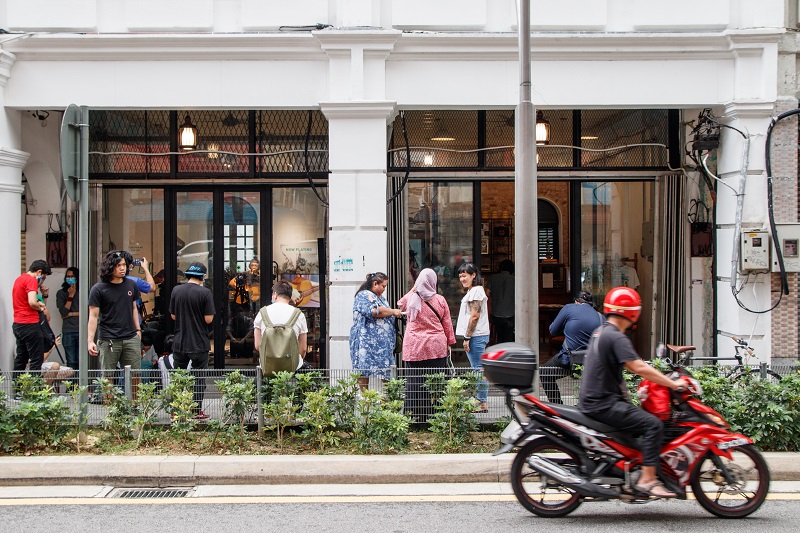
“The response was overwhelming,” says Teoh. It helped that Kide’s art was accessible. His depiction of festive celebrations and merrymaking was refreshing, especially to people who had spent months holed up in isolation. Families with children, friends and art enthusiasts were among the steady stream of visitors.
“Everyone was looking for meaning, something else other than the number of cases,” says Leong. “I think Covid is like a collective trauma. So when you’re in trauma, you don’t realise there is life happening around you. When we opened, all the other exhibitions did the same. People came to remember the nice things around.”
However, Tun Perak Co-Op was not built to be just an event venue. The founders’ vision is for it to be an archival chamber of people’s stories.
“There is a need in Kuala Lumpur, in this country, now more than ever, for a space to store and preserve stories,” says Leong.
“Our parents and grandparents are probably the last generation who have gone through pre-Merdeka. They won’t be around in the next 10, 20 years. If we don’t start collecting these stories, we’re going to be left with gaps in our history.” This urgency has perhaps been made more palpable by the pandemic.
img_3589.jpg
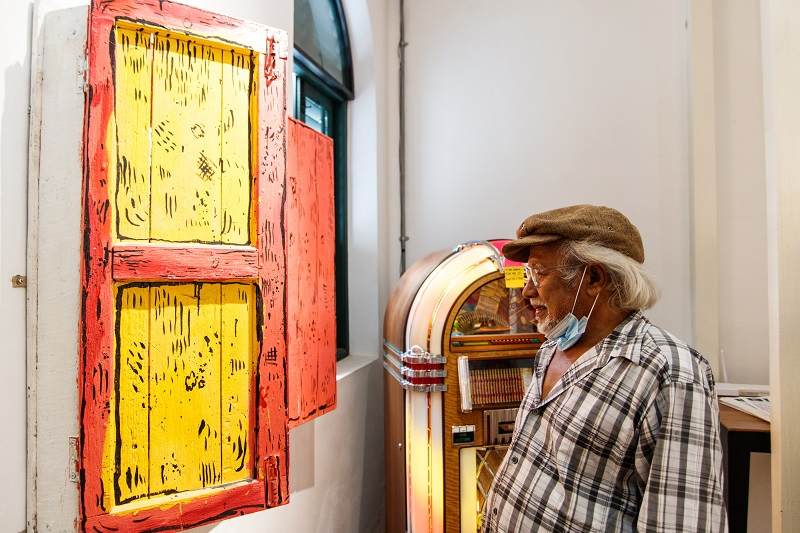
Collecting these stories is a noble intention but is it possible to archive so many in such a small space? Leong says this is where digitisation comes in. Teoh explains that one of Tun Perak Co-Op’s core components is an audio-visual archiving programme, which aims to make people rethink traditional archiving. Even Kide’s exhibition was digitally documented.
The team is currently working with notable storytellers, writers, custodians and journalists to build this programme — the place is called a co-op for a reason — and the goal is to record the stories of under-represented communities in a unique way.
Tun Perak Co-Op’s small size is also viewed as a strength. “I think when you’re small, you’re also nimble and flexible,” Teoh explains. “And especially with the market, you need to be quick in making decisions and changing, which I think is what we’re prepared for.”
“It also puts us in a position where we are closer to the people,” Leong adds.
It was imperative to the founders that the Jalan Tun Perak community does not feel threatened by their presence.
img_3566.jpg
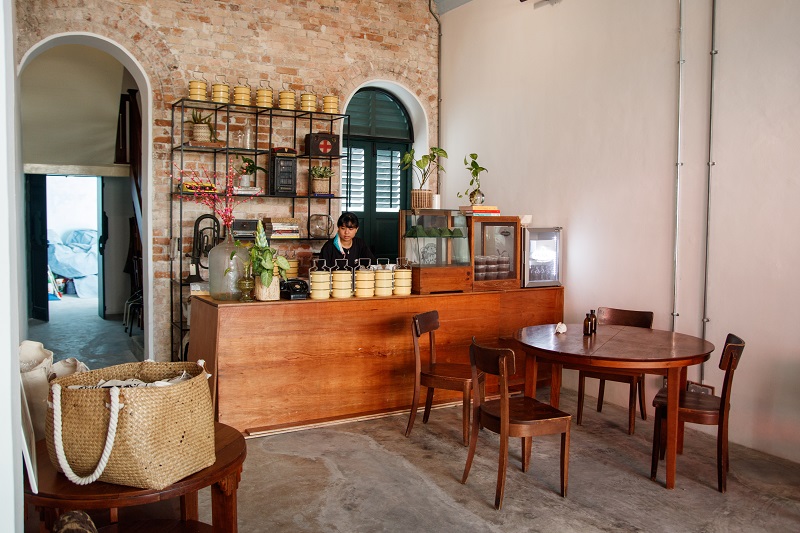
“We don’t want to give them competition,” says Leong. “Tun Perak is not another café or eatery.” It does, however, have a Tun Perak Co-Op General Store that acts as the middleman for products from different individuals and organisations in the area.
Recent collaborations include tiffin meals by Buku Jalanan Chow Kit and bottled kopi and teh tarik from a hawker across the street.
“Many small NGOs, social enterprises and F&B owners don’t have that quick response time to digitalise their businesses,” Leong explains. “It’s a job on its own. You can’t expect an uncle who’s been selling coffee for 20 years to suddenly do Grab deliveries. It’s a working-class crowd over here. If you’re looking for a treat, maybe the food at Tun Perak is not for you, I’ll say that outright.
“But you’ll know that the money spent here sustains other organisations and people. We hope to get [the digitalisation of their businesses] off their hands and help them market their products.”
The Tun Perak Co-Op General Store will also carry merchandise by local artists, from basket weavers to T-shirt printers. It will not ask for big monthly consignments.
20200729_peo_beatrice_ming_9_msy_1.jpg
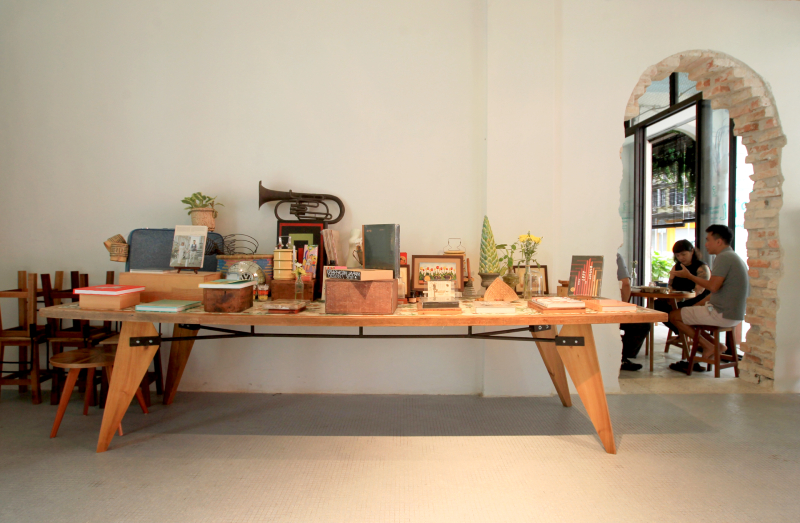
“An artist could say he or she only has 10 paintings or prints to sell and we wouldn’t mind,” Teoh says. He adds that there are more plans for Tun Perak Co-Op in the future.
“There will be the archive, general store and, maybe one day, a podcast or a community radio station. We all want to contribute to society and the community around us.”
Essentially, the Tun Perak Co-Op is a customisable space. “You can have your next town hall or community meeting here,” says Leong. But it could also be a place where people can find inspiration and respite.
“We should also be able to be that place for those who are just frazzled and need a break. Even if it’s just looking at art for 10 minutes or buying something that reminds them of their childhood, I want people to be able to find that space in us.”
Leong recalls a memorable moment when an autistic child who visited the exhibition became overwhelmed by the crowd. The team led his family to the hall and stopped guests from going in momentarily to allow them some privacy. The moment the child looked at the artworks, he calmed down.
Teoh also shares the story of how a couple travelled from different states to catch the show, but just missed the closing time. The team opened up the space for another 45 minutes for them. “It was a good feeling knowing we could offer that,” he says smiling.
20200729_peo_beatrice_ming_3_msy_1.jpg
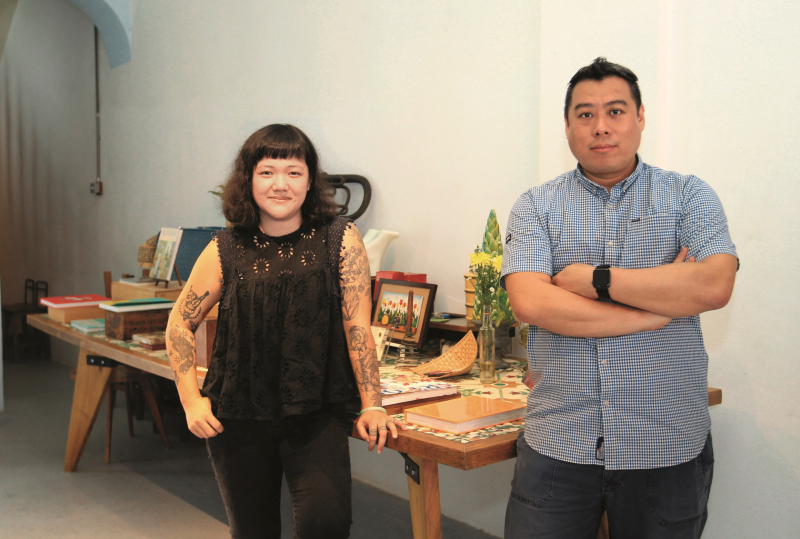
“That’s how we’re hoping to build the business,” Leong adds. “Tun Perak should be a respite from the noise where you can come and make meanings over what we have curated for you.” The interior décor also often gets rearranged by the handful of part-time and full-time staff in order to create new experiences for returning visitors.
“Everyone here is contributing something different,” says Teoh. “We’re like a collective of pop-up people with different ideas.”
So far, the establishment has locked in several programmes, including master classes and workshops, until November. Next month, it will host a photo exhibition for KL 20X20.
And in 2021, there are plans to open up the backlanes for a festival, an idea inspired by Leong’s Backlane Cinema project with Rex KL.
While there seems to be plenty of routes for Tun Perak Co-Op General Store to explore, the founders are in agreement that they will feel their way through and go with the flow.
But what is set in stone is the fact that the space will always change to mean something different for different people.
This article first appeared on Aug 17, 2020 in The Edge Malaysia.


